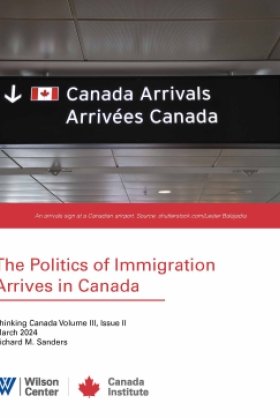New Scholarship in Race and Ethnicity <br>Tribal Self-Determination at the Crossroads
Overview
This event was co-sponsored and made possible by the Maurice Falk Fund.
A society demonstrates its sovereignty and expresses its values through the acts it defines as legitimate or as criminal, but the laws of the United States prevent Native American tribes from defining and prosecuting felonies (major crimes) on their reservations. This, Prof. Kevin Washburn told the audience at the Division of U.S. Studies' twelfth program in the New Scholarship in Race and Ethnicity series, suggests that tribal self-determination is far from complete.
As an example of the way criminal law reflects basic notions of morality, Washburn noted that the laws of California make it a crime for people to commit homicide to protect their property, while Texas law allows a property owner to kill to protect his or her property. The difference that the people of the two states place on the value of property and the value of life are reflected in those laws. In other words, according to Washburn, criminal law is "where we catalog what our morals are." The officially sanctioned relative value of life, safety and property on Indian reservations, however, is determined not by the residents of those communities but by the federal government.
Washburn went on to criticize the institutions that play a role after a crime has allegedly been committed on a reservation. In the American criminal justice system as it exists in the rest of the nation, prosecutors, grand juries, and juries are all designated instruments of the community. Prosecutors, who decide which crimes warrant prosecution, are elected by the community and make their decisions on the basis of community values. Americans are used to the idea of a jury of one's peers, which can choose to convict or not, again depending on community values. But because federal district courts may be located hundreds of miles from the reservation on which a crime has occurred, the community most affected by the crime is not involved in the criminal justice process. The prosecutor, who is not elected by the community but is appointed by Washington, is unlikely to be a Native American; neither are the members of the grand jury (which hands down an indictment) or the jury that determines innocence or guilt. Prosecutors are frequently unable to produce witnesses who live hundreds of miles from the courthouse.
As long as criminal law for Indian tribes is governed by federal officials, tribes do not have real self-determination. Individual defendants are denied the right to be tried by their community; victims are denied the right to seek justice from a community body; but above all, the community itself is denied the right to define its norms and govern itself. The possibility for correction of this situation exists, Washburn argued, because of Congress' interest in the "war on crime." Tribes need to make the case to Congress that giving them control of major crimes would aid in crime reduction. While crime has decreased across the nation during the last 20 years, it has increased on reservations. Department of Justice statistics indicate that Indians living on reservations are twice as likely as other groups to be victimized by serious crime and an Indian woman has a one-in-three chance of being sexually assaulted during her lifetime.
While many of the laws that have advanced Indian autonomy have followed on the backs of other popular political waves, such as the civil rights movement, commentator Alexander Tallchief Skibine wondered whether an overhaul of Indian criminal law is possible even as a component of the war on crime. Questioning Congress' commitment to tribal autonomy, Skibine reviewed the acts that Congress has and has not taken during the last three decades. Skibine reads the record as indicating that Congress neither realizes how racist many of the existing laws are nor knows how to define tribal sovereignty and self-determination within the American federal system. Congress does not appear able to decide whether tribes should be treated as foreign nations, states or local municipalities. The "trust relationship" between the federal government and the tribes, which originally stemmed from a belief that the federal government had to act as a trustee for Indians incompetent to rule themselves, negates real self-determination. As long as American federalism is defined as having only the two prongs of the federal government and the state governments, Skibine asserted, tribal self-determination is impossible, and a substantial group of Americans will live in something less than a democracy.
To read Prof. Washburn's paper, click here.
Drafted by Acacia Reed and Philippa Strum
Philippa Strum, Director of U.S. Studies 202-691-4129
Thank you for your interest in this event. Please send any feedback or questions to our Events staff.










